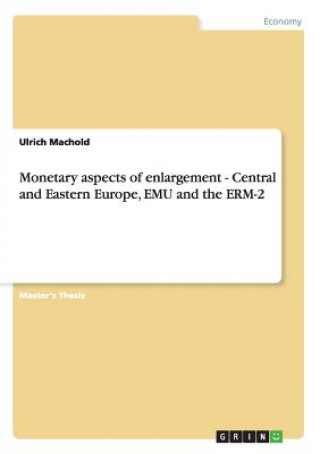
Kód: 05277787
Monetary aspects of enlargement - Central and Eastern Europe, EMU and the ERM-2
Autor Ulrich Machold
Master's Thesis from the year 2002 in the subject Economics - Monetary theory and policy, grade: 1.0 (A), Technical University of Berlin (-), 54 entries in the bibliography, language: English, comment: , abstract: A rough 50 years ... celý popis
- Jazyk:
 Angličtina
Angličtina - Vazba: Brožovaná
- Počet stran: 64
Nakladatelství: Grin Publishing, 2008
- Více informací o knize

Mohlo by se vám také líbit
-

Multiple Criteria And Multiple Constraint Levels Linear Programming: Concepts, Techniques And Applications
3918 Kč -

RFID and the Internet of Things
4890 Kč -

Total Solar Eclipses and How to Observe Them
768 Kč -

Cannibals - the Discovery and Representation of the Cannibal from Columbus to Jules Verne
1921 Kč -

West Coast Main Line and Branches in Lancashire
376 Kč -

Stammesgeschichte Der Saugetiere
1235 Kč -

Die NEUE Kinder-Uni Wissens-Box, 7 Audio-CDs
631 Kč
Dárkový poukaz: Radost zaručena
- Darujte poukaz v libovolné hodnotě a my se postaráme o zbytek.
- Poukaz se vztahuje na celou naši nabídku.
- Elektronický poukaz vytisknete z e-mailu a můžete ihned darovat.
- Platnost poukazu je 12 měsíců od data vystavení.
Více informací o knize Monetary aspects of enlargement - Central and Eastern Europe, EMU and the ERM-2
Nákupem získáte 141 bodů
 Anotace knihy
Anotace knihy
Master's Thesis from the year 2002 in the subject Economics - Monetary theory and policy, grade: 1.0 (A), Technical University of Berlin (-), 54 entries in the bibliography, language: English, comment: , abstract: A rough 50 years after its foundation, the European Union (EU) is preparing for the probably most ambitious challenge of its existence, the binding-back into the West of the once centrally-planned economies of Central and Eastern Europe (CEEC). Together with political and general economic efforts, European monetary integration also gains speed with as many as twelve CEEC queuing up for entry into the EU (not including Turkey, which has not yet officially begun entry negotiations), the first of them most likely joining the Union already two years after the physical introduction of the single currency, i.e. in 2004. Many of these countries are eager to also join Monetary Union (EMU) and show their ability to be good Europeans by adopting the Euro as soon as possible. Various statements by both CEEC-government officials and monetary authorities exemplify this very vividly.§This implies that the enlargement of EMU is already a relevant issue. By the time it becomes acute, positions and perspectives of both applicants and current members should be clear, if unnecessary delays and political irritations are to be avoided. The body of literature on the subject is thus as large as the questions of when, how and on what terms CEEC-accession will take place are pressing, and becoming more so as time progresses.§This study attempts to coherently examine the core issues related to EMU-enlargement, equally synthesising the various segmented approaches of the academic debate, and deduce normative conclusions as to what strategic outlook should seem appropriate to both CEEC and the current EMU-12: In what timeframe should accession most sensibly take place? How appropriate are the mechanics leading up to EMU, most prominently the Exchange Rate Mechanism (ERM-II) and the Maastricht criteria, and how should they be dealt with? What are the most likely problem areas and deficits that need to be confronted? Since there appears to exist a more or less stable consensus regarding the basic desirability of EMU for the CEEC, the paper will concentrate more on the run-up to full EMU, equally the road to the euro, and place special emphasis on the CEEC s attitude towards the ERM-II.
 Parametry knihy
Parametry knihy
Zařazení knihy Knihy v angličtině Economics, finance, business & management Economics
1413 Kč
- Plný název: Monetary aspects of enlargement - Central and Eastern Europe, EMU and the ERM-2
- Autor: Ulrich Machold
- Jazyk:
 Angličtina
Angličtina - Vazba: Brožovaná
- Počet stran: 64
- EAN: 9783638886246
- ISBN: 3638886247
- ID: 05277787
- Nakladatelství: Grin Publishing
- Hmotnost: 95 g
- Rozměry: 210 × 148 × 4 mm
- Datum vydání: 11. January 2008
Oblíbené z jiného soudku
-

Why Nations Fail
276 Kč -
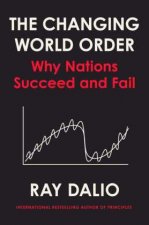
Principles for Dealing with the Changing World Order
506 Kč -

Team Topologies
512 Kč -
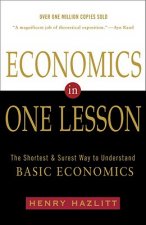
Economics In One Lesson
368 Kč -

Freakonomics
213 Kč -

Irrational Exuberance
485 Kč -

Breakthrough Copywriter
427 Kč -

Misbehaving - The Making of Behavioral Economics
284 Kč -

Art of Statistics
306 Kč -

Liar's Poker
303 Kč -

Rational Optimist
276 Kč -

Predictably Irrational
389 Kč -

Pyramid Principle, The
1268 Kč -
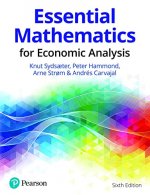
Essential Mathematics for Economic Analysis
1926 Kč -

Price of Inequality
259 Kč -

The Invisible Hand
196 Kč -

How I Made One Million Dollars Last Year Trading Commodities
979 Kč -

(Mis)Behaviour of Markets
357 Kč -

Leading at a Higher Level
813 Kč -

Cartoon Introduction to Economics
462 Kč -

Economics 101
344 Kč -

Discovery, Capitalism & Distributive Justice
542 Kč -

Human Action
947 Kč -

Leadership Presence
564 Kč -

Business Model Navigator, The
737 Kč -
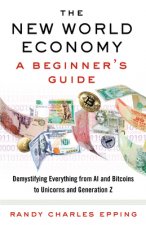
New World Economy: A Beginner's Guide
370 Kč -

J R
646 Kč -

Index Card
363 Kč -
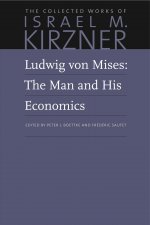
Ludwig von Mises
542 Kč -

Radical Uncertainty - Decision-Making Beyond the Numbers
447 Kč -

Speak Up
463 Kč -

Start-Up Nation
254 Kč -
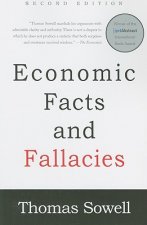
Economic Facts and Fallacies
417 Kč -

Debt, 10th Anniversary Edition
647 Kč -

A-Level Economics: Year 1 & 2 Complete Revision & Practice (with Online Edition)
700 Kč -

Scrum - A Pocket Guide - 3rd edition
563 Kč -

Hypomanic Edge
502 Kč -

Freakonomics
172 Kč -
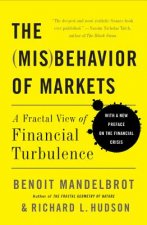
Misbehavior of Markets
584 Kč -
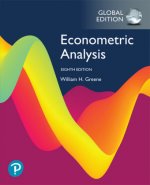
Econometric Analysis, Global Edition
2129 Kč -
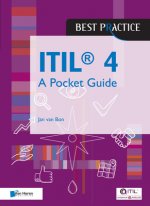
ITIL4 A POCKET GUIDE
623 Kč -

Decision Book
447 Kč -

Principles of Economics
389 Kč -

45 Second Presentation That Will Change Your Life
232 Kč -
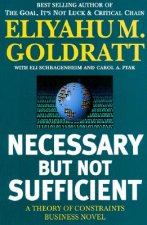
Necessary but Not Sufficient
404 Kč -
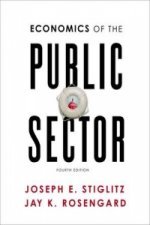
Economics of the Public Sector
2255 Kč -

Economics: The User's Guide
358 Kč -

Think Like a Freak
241 Kč -

Phishing for Phools
409 Kč
Osobní odběr Praha, Brno a 12903 dalších
Copyright ©2008-24 nejlevnejsi-knihy.cz Všechna práva vyhrazenaSoukromíCookies



 Vrácení do měsíce
Vrácení do měsíce 571 999 099 (8-15.30h)
571 999 099 (8-15.30h)